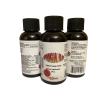In recent years, sleep patches have gained popularity as a potential solution for those struggling with sleep issues. Promising a restful night's sleep without the need for medication or other invasive methods, these patches have captured the attention of many individuals desperate for better quality sleep.
But Do Sleep Patches Really Work?
Proponents argue that these patches slowly release substances throughout the night, helping you fall asleep faster and achieve a more restful slumber. However, some experts remain skeptical about their efficacy as there is limited scientific evidence backing up these claims. Let's dig deeper into this trendy sleep aid and separate fact from fiction.
Most Sleep patches typically contain natural ingredients such as melatonin, valerian root, or lavender oil that are believed to promote relaxation and induce sleep. These ingredients are infused into adhesive patches that are applied directly onto the skin before bedtime. Therefore the essence of these patches is the ingredients that spread slowly through the skin over a period of 6 to 8 hours for a good night's sleep. We recommend you try Sleepie Patch which contains all these essential ingredients that are conducive to restful sleep.
Sleepie Patch: The Trendy Sleep Aid Patch That Works Wonders
If you are looking for the best sleep aid considering Sleepie Patch by Phoenix would be added advantage. This sleep patch worked wonders for most of our patients. Try Sleepie Patch today and see how it works for you.
How do the Sleep Patches Ingredients work?
Sleep patches may or may not work for you depending on the type of brand you choose and the ingredient it contains and may also depend on other factors including medications being taken. The ingredients used in most sleep patches are mainly organic and plant-based herbs that are believed to improve sleep function. So let us look in detail at some of these ingredients known to work in falling asleep such as:
a) Melatonin:
Melatonin is a hormone that your brain produces in response to darkness. It helps with the timing of your circadian rhythms (24-hour internal clock) and with sleep. Being exposed to light at night can block melatonin production. Some of these potential roles include antioxidant activity, Immune system regulation, Eye health, and growth hormone regulation in children
Additionally, Melatonin regulates our sleep-wake cycle. It is often called the "sleep hormone" because it plays a crucial role in promoting healthy sleep patterns. When darkness falls, our body naturally releases melatonin, signaling to our brain that it's time to rest and recharge. However, due to various factors such as stress, exposure to blue light from electronic devices, or travel across different time zones, our natural melatonin production may become disrupted.
b) Valerian Roots
Valerian root, a natural herb derived from the Valeriana officinalis plant, has been used for centuries to promote relaxation and improve sleep. Its effectiveness in aiding sleep is attributed to several key components found within the root. One of these components is valerenic acid, which acts as a sedative and helps calm the nervous system. This acid increases the levels of gamma-aminobutyric acid (GABA) in the brain, a neurotransmitter that reduces brain activity and promotes feelings of calmness.
Another important compound found in valerian root is linarin, which also contributes to its sleep-enhancing properties. Linarin exhibits anxiolytic effects by binding to specific receptors in the brain responsible for anxiety regulation. By reducing anxiety levels, it becomes easier for individuals struggling with sleep disorders or insomnia to fall asleep and experience more restful nights.
c) Lavender
Lavender has long been hailed for its ability to promote relaxation and improve sleep. This natural ingredient, derived from the lavender plant, contains compounds that have a soothing effect on both the mind and body. One of these compounds is linalool, which has been found to reduce anxiety and induce a calming sensation. By inhaling lavender or using products containing this ingredient before bedtime, individuals can experience relief from stress and achieve a night of more restful sleep.
Also, lavender is known for its sedative properties, making it an excellent option for those struggling with insomnia or other sleep disorders. Research has shown that the scent of lavender can slow down heart rate and decrease blood pressure, creating an environment conducive to sleep. Furthermore, studies have revealed that lavender can increase deep or slow-wave sleep, the most restorative phase of our sleep cycle when our bodies repair and rejuvenate themselves.
d) Passion Flower
Passion Flower, an ancient herbal remedy, has gained significant attention for its potential to improve sleep. This natural ingredient is derived from the Passiflora incarnata plant and has been used in traditional medicine for centuries. Recent research suggests that Passion Flower may help regulate sleep patterns and promote a more restful night's sleep.
One way Passion Flower aids in improving your sleep is by reducing anxiety and promoting relaxation because studies show that the compounds found in this plant can bind to certain receptors in the brain, resulting in a calming effect on the central nervous system. By reducing feelings of stress and anxiety, Passion Flower can help individuals achieve a more peaceful state of mind before bedtime, leading to improved sleep quality. Furthermore, Passion Flower is believed to increase levels of gamma-aminobutyric acid (GABA) in the brain.
Conclusion:
While sleep patches may seem like a convenient and innovative solution for sleep troubles, there is limited scientific evidence to support their effectiveness. Despite the claims made by various manufacturers, it is important to approach these products with caution and skepticism. Therefore it is always best to consult with a healthcare professional before trying any new sleep aid or remedy.
Additionally, focusing on maintaining a healthy sleep routine and implementing proven strategies such as creating a relaxing environment and practicing good sleep hygiene can have more long-lasting benefits. Remember, quality sleep is essential for overall well-being, so prioritize your rest and seek out reliable solutions that have been thoroughly researched and tested.

















